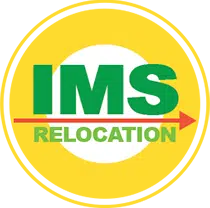5 Ways Restaurant Moves Are Different
Think all commercial moves are the same? Think again. Restaurants, as today’s example, deal with certain logistical considerations that you won’t find in any other industry. (And we’re not just talking about extra tables and chairs.) That means there is more to consider with them, from the equipment used to the timeline for the move.
Let’s cover five ways restaurant moves in Dallas-Fort Worth are different from residential moves and commercial moves in other industries.
1. Specialized Equipment
Restaurants tend to utilize specialized machinery and equipment like ovens, refrigerators and oversized appliances. Not only do these types of items require commercial-grade equipment to move properly, but they also require a keen understanding of proper handling techniques. IMS Relocation specializes in the careful transportation of restaurant equipment, ensuring it arrives at the new location in optimal condition.
2. Sense of Urgency
While residential moves and office moves tend to be more straightforward and flexible, restaurant moves usually come with tight timeframes. Downtime equals lost revenue and missing out potential customers, so it’s important to move as quickly as possible. As such, the restaurant mover you choose should have an efficient planning and execution strategy to ensure a swift transition that doesn’t compromise the quality of service.
3. Inventory Management
From perishable items to various supplies, restaurants deal with extensive inventories to manage and track. In order to prevent spoilage or other losses, restaurant moves require comprehensive inventory management. If you’re planning a restaurant move, ensure every item in your inventory is carefully documented for transportation.
4. Furniture and Decor
Your restaurant’s decor and furniture contribute to your ambiance and brand identity, so they require careful handling to protect them and maintain their aesthetics. This is why specialized packing techniques are crucial, as they can safeguard furniture and decor against damage.
5. Permits and Licensing
Finally, there may be local permits, licenses and zoning regulations to consider with a restaurant move. IMS Relocation understands the importance of compliance with local authorities and works to coordinate the necessary permits and licensing to ensure a smooth transition. This attention to detail helps restaurant owners focus on reopening their doors at the new location without unnecessary administrative hurdles.
If you’re an owner or franchisee considering a restaurant move in Dallas-Fort Worth, trust the team at IMS Relocation to handle it. Contact us for a no-obligation quote today!


